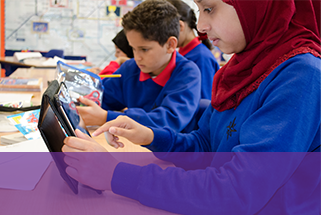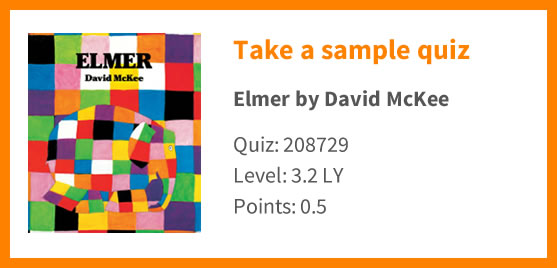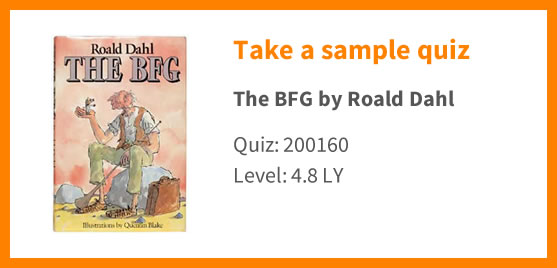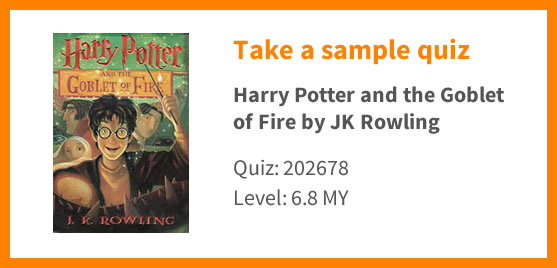Choosing interesting books
Children make the most progress when they read books that interest them. That's why every book with an Accelerated Reader quiz is tagged with topics and listed on our public search engine AR BookFinder
The advanced book discovery feature within AR introduces children to books they might be interested in - and even identifies the ones available in the school library.
No wonder that recent research from the National Literacy Trust found that children who use AR read more widely than their peers.
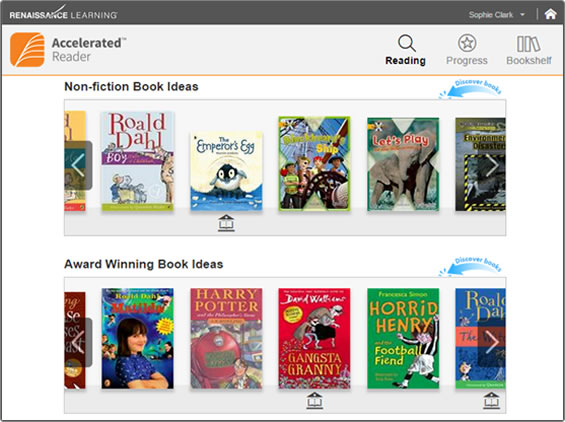
Reading appropriate books
Books that are too easy for children don't give them the challenge they need to make progress. Books that are too complex frustrate them.
Accelerated Reader uses the computer-adaptive STAR Reading test to determine a student's reading age. Teachers get a wealth of feedback, and students are guided towards appropriate books.
AR uses either the ATOS or Lexile® measures of text complexity to help children to select books of an appropriate level. This is their 'Zone of Proximal Development' (ZPD).
As children make progress with their reading skills, their ZPD broadens to encompass a wider range of literature.
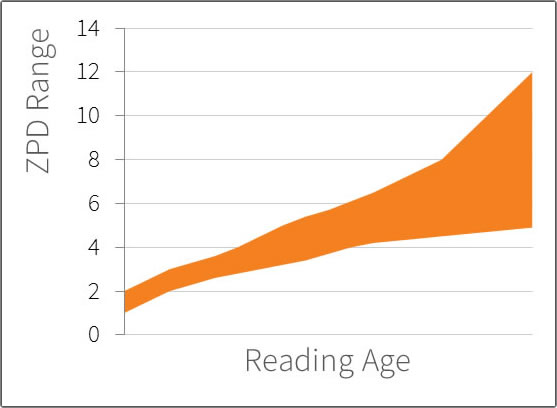
Reading independently or with help
A literacy programme with AR at its heart can be tailored to suit children of all ages and abilities, even within mixed groups.
Most children can read books and take Accelerated Reader quizzes independently. The programme also supports 'reading to' and 'reading with' children.
Over 600 of the most popular quizzes on books for emerging readers have a Recorded Voice feature, allowing children to listen to the quiz being read to them.

Reading Practice Quizzes
Reading Practice quizzes ask questions that measure a student’s comprehension of a book.
There are 3, 5, 10 or 20 questions in a Reading Practice quiz depending on the length and complexity of the book. Approximately 200 new quizzes are added to the programme every month.
Vocabulary Practice Quizzes
Vocabulary Practice Quizzes measure a child’s command of vocabulary words encountered while reading.
These quizzes are designed to reinforce vocabulary acquisition, assist with individualising vocabulary instruction, and generate children’s interest in words through authentic, in-context literature experiences. Quizzes include 5, 10, or 15 words from a particular book as well as review words from previously read books.
Literary Skills Quizzes
Literacy Skills Quizzes are designed to give teachers information on specific reading skills.
Questions are randomly generated from a 36- or 60-item bank, resulting in 12 or 24 quiz questions. Due to item-bank technology, Literacy Skills Quizzes can be taken up to three times. Quiz questions are based on 24 specific, higher-order reading comprehension skills.
For children
Every time a child reads a book and takes a quiz with Accelerated Reader, they get immediate feedback on their results.
The Opportunity to Praise Students Report is automatically produced after every quiz, showing the results of the quiz just taken. Students working towards individualised goals will have their progress towards those goals displayed on their TOPS Reports.
The Accelerated Reader primary experience shows children the progress they are making with a simple and attractive sunflower design.
The EEF/Sutton Trust Teaching and Learning Toolkit has found regular personalised feedback to be among the most effective means of improving children's educational standards.
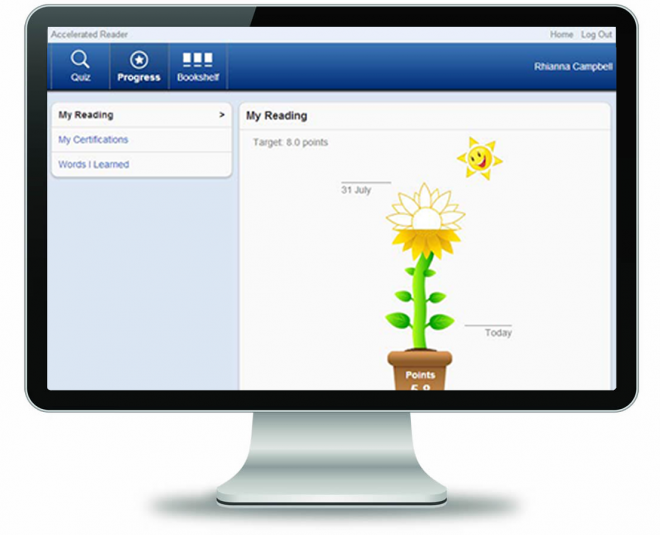
For teachers
Accelerated Reader gives teachers the information they need to monitor children's reading practice and make informed decisions to guide their future learning.
The interactive Reading Dashboard allows educators to see how well children are performing at class, group and individual level. It allows teachers to diagnose problems and inform intervention programmes
A comprehensive set of reports show children's progress towards targets, growth over time, and their level of engagement with the programme.

For parents
Reading logs and TOPS reports help teachers to keep parents informed of their children's progress with reading.
The Renaissance Home Connect* website works alongside Accelerated Reader to allow parents to see their children's progress toward reading targets.
Conduct book searches using AR BookFinder, review AR Quiz results, view the number of books and words read and strengthen vocabulary skills.
*Does not allow quizzing in Accelerated Reader from home.







